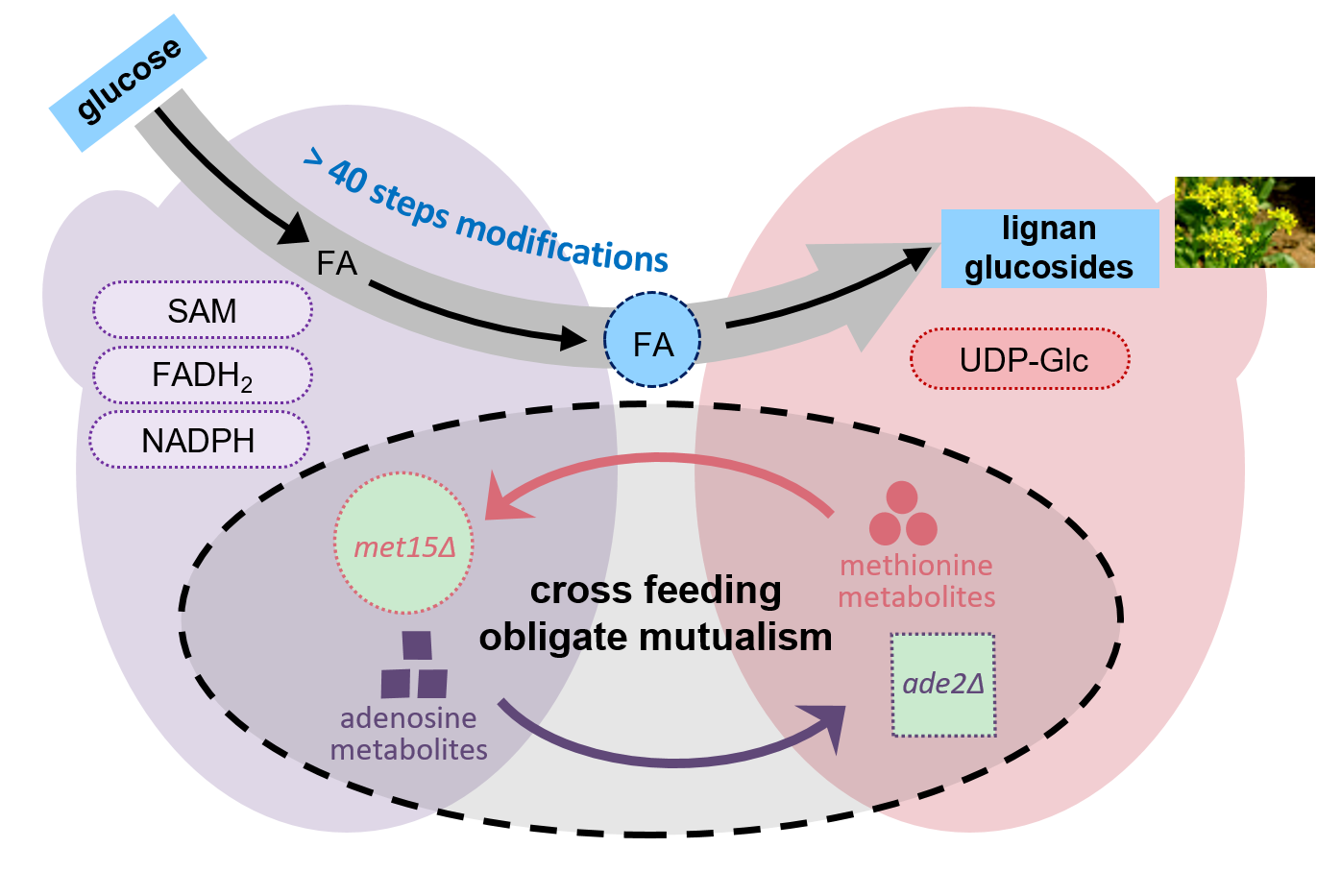Lignans are low molecular weight polyphenolic compounds with important clinical value, including antitumor and antiviral properties. However, their low amounts in medicinal plants and complex structures make sustainable production through plant extraction and chemical synthesis challenging, limiting their availability to meet market demand.
A research group led by Prof. ZHOU Yongjin from the Dalian Institute of Chemical Physics (DICP) of the Chinese Academy of Sciences (CAS), in collaboration with Prof. ZHANG Lei and Prof. CHEN Wansheng from the Naval Medical University, has achieved the biosynthesis of the antiviral ingredient lignan glycoside in yeast Saccharomyces cerevisiae. The study was published in Nature Chemical Biology

De novo biosynthesis of plant lignans by synthetic yeast consortia (Image by CHEN Ruibing)
Researchers constructed a synthetic yeast consortium inspired by plant metabolism. By simulating the multicellular synthesis mechanism in plants, they addressed challenges related to side reactions and metabolic network promiscuity.
Researchers designed two auxotrophic yeast strains (met15Δ and ade2Δ) to form a mutualistic relationship, cross-feeding metabolites while dividing the biosynthetic pathway into upstream and downstream. This enabled the de novo synthesis of lariciresinol diglucoside through over 40 enzymatic reactions.
"Our work demonstrates that Saccharomyces cerevisiae auxotrophic strains spontaneously establish a mutualistic community for the heterologous synthesis of complex active ingredients in traditional Chinese medicine," said Prof. ZHOU. "And this strategy is expected to be extended to the design of other stable cooperative yeast cell systems to accomplish complex bioengineering tasks," Prof. ZHOU added.